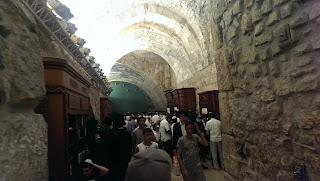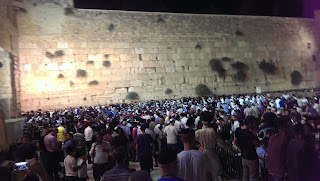Stuff Can Be Important, too
This week, a screwdriver made me cry, and a wooden sign brought a wave of emotion to my wife.
 |
| Like the caption of this blog: From New England to the Negev. |
When you pack up your life to move to a new country, you realize that not all your stuff is coming for the journey. When you downsize from 1500 square feet (not including a full basement, attic, and garage) to just shy of 600 square feet, you realize that your life needs to exist independent of the things you have acquired. Life's meaning and purpose are directed away from the material to something else.
But, that does not negate what I have learned this past week.
Things can be important too. Things can help bring us meaning. Or, rather, perhaps it is not the thing itself but the memories. More on this later.
If you have not guessed it, this week, our stuff arrived.
FINALLY!
Now, I need to premise this with my overall satisfaction with
Isaac's Moving and
Kef International who teamed up to deliver our stuff to Retamim. They really did great. From providing estimates, packing our house in record time, clearing customs, and delivering to our doorstep, they did remarkable. Everything that was in their control went pretty smoothly.
I have heard many horror stories from people that had one difficulty or another. We did not really experience much of that, except ...
... today is March 5. Our stuff was supposed to arrive around January 5. Hmm. What's in a couple calendar flips?
On our flight, we took
pretty minimal items. We had to out of necessity. But, we figured that we could get by with only the basics for six weeks, and then we would have everything else we needed to get through the day. That did not go according to plan.
For example: I brought two pairs of socks on the plane. Yup, just two. Why? Well, for starters, I hate socks. I would much rather wear boat shoes all the time if I could. And, I figured I would. The problem is that I quickly wore out my favorite Bass boat shoes, and needed to revert to sneakers--with only two pairs of socks in the rotation. For three months. Grumble, grumble.

Needless to say, when the stuff did arrive, we were happy.
What was I looking forward to the most? What things did we miss having? These are some questions we were asked a lot.
The first answer that came to our minds were our knives. Our beautiful knives.
We bought some dinky $1 paring knives to pack into our suitcases (yes, the El Al staff wanted to know about them before we got on the plane and specially marked that bag). Again, if it were only 6 weeks, we would have made do with them. But it dragged on ... and on ... and on. It seems as though our items may have missed the boat and ended up on the slow boat from Boston. Then, instead of landing in Ashdod port where it was supposed to port (about an hour and a half away), the ship landed in Haifa port (at least twice as far). More delay.

Now back to my original point. We travel through life constantly acquiring and discarding things. For good or bad, that is the way of the world. Sometimes we attach a lot of meaning to things. A particular car may be the status symbol of promotion at work. A scribbled piece of paper from a two-year old may hang proudly on display on a refrigerator door for months. Souvenirs exist on every street corner. But they are all things that only have meaning because we impart upon them.
Besides the practical use of objects that we are familiar with, and not having to spend money repurchasing everything we own, the stuff we did bring to Israel had special meaning. For Rachel, it was a family heirloom candleabra and her great-grandmother's silver.
For me, there was one object that I brought that I did not even realize had sentimental meaning until I unpacked it.
The screwdriver.
I tucked it away into my toolbox months ago not thinking much about it after that. After all, there are many in my toolbox. Why would one be any more special than the others? When I pulled this particular one out, however, it jolted me pretty hard.
This week, I realize that it is not the actual items that we crave. It is the memories we attach that make things special. It is our associations that we hold dear. Things are tangible memories.
And so it is with a screwdriver.
A screwdriver that belonged to my grandfather.
I love you pop. RIP.
.png)


























1 comments: